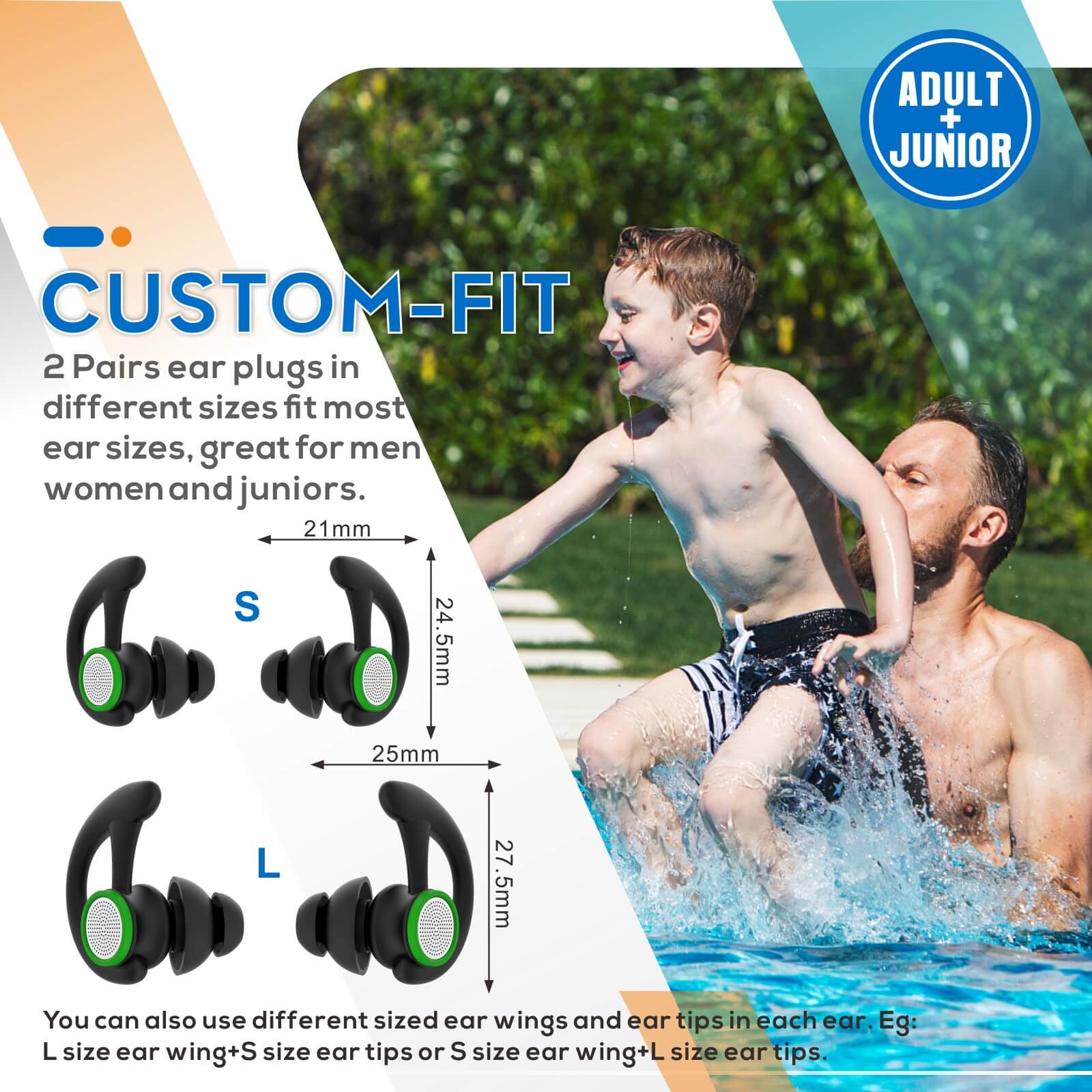Swimming is a popular activity that provides numerous health benefits. However, it is important to protect our ears while swimming to prevent potential damage. Wearing earplugs while swimming is a simple yet effective way to safeguard our ears. In this article, we will explore the top five benefits of wearing earplugs while swimming.

1. Protection against Waterborne Infections
One of the primary benefits of wearing earplugs while swimming is the protection it offers against waterborne infections. Our ears are vulnerable to various bacteria and fungi present in swimming pools, lakes, and oceans. These microorganisms can cause painful ear infections such as swimmer's ear, which can lead to discomfort and hearing loss if left untreated.
By wearing earplugs, we create a barrier that prevents water from entering the ear canal, reducing the risk of infection. This is especially important for individuals with a history of ear infections or those prone to developing them.
2. Prevention of Excessive Water Pressure
When we swim, the pressure of the water can exert force on our eardrums, leading to discomfort or even damage. Wearing earplugs helps to equalize the pressure inside and outside the ear, reducing the risk of pain or injury.
For individuals who engage in activities such as diving or synchronized swimming, where water pressure changes rapidly, earplugs are particularly beneficial. They help maintain a balanced pressure, ensuring the safety and comfort of the swimmer.
3. Minimization of Noise-Induced Hearing Loss
Swimming pools can be noisy environments, especially during peak hours. The combination of splashing water, echoes, and conversations can create a cacophony that may lead to noise-induced hearing loss over time.
By wearing earplugs, swimmers can reduce the amount of noise entering their ears, protecting their hearing. This is particularly important for competitive swimmers or individuals who spend a significant amount of time in the water.
4. Prevention of Excessive Earwax Buildup
Earwax is a natural substance that helps protect our ears by trapping dust, debris, and bacteria. However, excessive earwax buildup can lead to discomfort, hearing loss, and even infections.
Wearing earplugs while swimming can help prevent water from entering the ear canal and disrupting the natural balance of earwax. This reduces the risk of excessive buildup and the associated complications.
5. Enhanced Focus and Performance
Wearing earplugs while swimming can also improve focus and performance in the water. By reducing distractions from noise and discomfort, swimmers can concentrate better on their technique and form.
Furthermore, the added comfort and protection provided by earplugs can boost confidence, allowing swimmers to push themselves further and achieve their goals.
Overall, wearing earplugs while swimming offers a range of benefits, including protection against waterborne infections, prevention of excessive water pressure, minimization of noise-induced hearing loss, prevention of excessive earwax buildup, and enhanced focus and performance. Whether you are a recreational swimmer or a professional athlete, incorporating earplugs into your swimming routine can help ensure a safe and enjoyable experience in the water.








